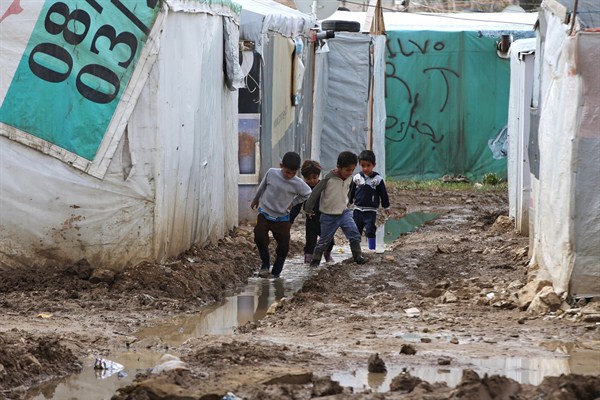Today the world is riveted by the tragic migrant flows from North Africa and the Middle East into Europe. Driven by conflict in their homelands, hundreds of thousands of refugees have risked—and sometimes lost—everything in search of security and opportunity far from their troubled nations. While addressing this humanitarian crisis is the most pressing concern for Europe, the United States and the rest of the world community, political leaders must also look further into the future: Today’s migrant crisis is the bow wave of tomorrow’s security challenges.
In the contemporary security environment, a peace settlement or the removal of a dictator no longer represents the end of a conflict, but only its shift to a different form. Protracted violence, particularly in dictatorships, wounds a society deeply. Existing systems of authority and order collapse. Dark networks and underground economies coalesce as political turmoil and crime merge. Psychological and ethical restraints on violence weaken and crumble. Anomie rules. To combatants and their victims, bloodshed becomes normal. Many people acquire the requisite skills for killing, learning how to obtain and use firearms, explosives and other means of bringing death to those who stand in their way. Violence becomes ingrained: Children know so many people who met a violent end that many of them simply assume they will too.
In a protracted conflict, this tragic state of affairs becomes self-perpetuating, creating a generation that is undereducated or uneducated, deeply distrustful of authority and accustomed to underground networks and economies. For these youth, violence is not an aberration interrupting peace but the norm. Returning home after a conflict is always difficult for warriors, but it is even more so when there is no normal life left. Because of this, the lost generations born of protracted conflict can slip effortlessly into crime, extremism and other forms of violence.

